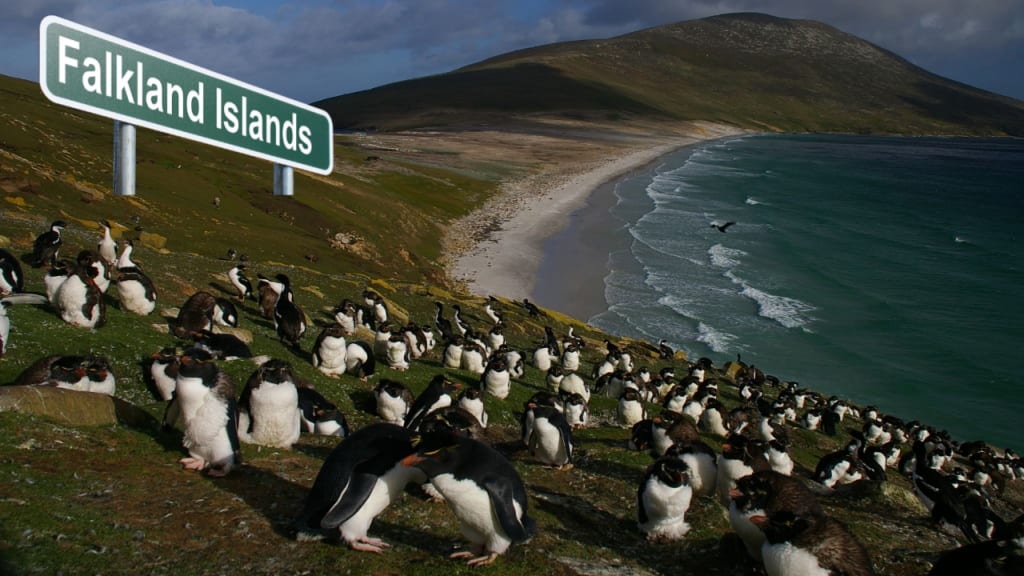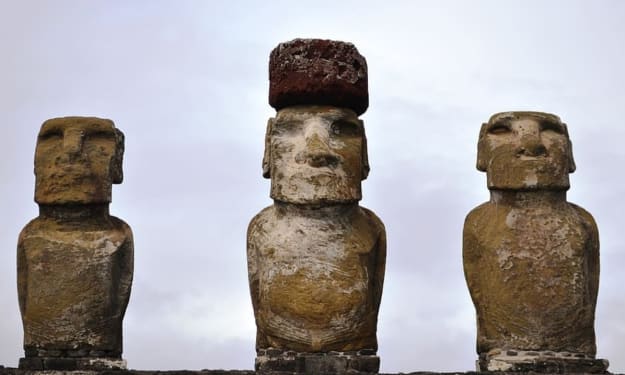The Falkland Islands (Islas Malvinas): A History of Competing Claims and Strategic Importance
The History and Diplomatic Tensions of the Falkland Islands

The Falkland Islands generally called the Islas Malvinas in Argentina, is An British Overseas Territory organized in the South Atlantic Sea. The islands have a long and complex history, set apart by regional questions, military contentions, and moving international collusions. In this blog, we will investigate the set of experiences and meanings of the Falkland Islands and their position in the cutting-edge world.
The Falkland Islands are a far-off archipelago tracked down approximately 300 miles off the bank of Argentina. The islands are contained two fundamental islands, East Falkland and West Falkland, as well as many more modest islands and islets.
The islands have a complete land area of around 4,700 square miles, making them overall the size of Connecticut.
The historical backdrop of the Falkland Islands is set apart by contending cases of power and vital significance. The islands were first located by European adventurers in the sixteenth hundred years, however, were not settled until the mid-nineteenth 100 years, when English and American whalers laid out bases on the islands. Argentina also made a case for the islands, referring to their vicinity as the Argentine central area and verifiable ties as proof of its power.
The disagreement regarding the Falkland Islands reached a crucial stage in 1982, when Argentina attacked the islands, provoking a reaction from the UK as a military team. The resulting struggle, known as the Falklands War, went on for 74 days and killed many officers and regular people. The UK emerged victorious and has maintained control over the Falkland Islands ever since.
In spite of the UK's victory, Argentina has kept on attesting its case to the Falkland Islands, which it sees as a necessary piece of its public region. The debate has been a wellspring of pressure between the two countries for quite a long time and has sporadically erupted into discretionary disagreements and, surprisingly, military posing.
Today, the Falkland Islands are home to a little however flourishing population of roughly 3,400 individuals. The islands are an English Abroad Region and are directed by a lead representative selected by the UK government. The islands have their own government, with a chief executive and an elected legislative assembly. The islands are likewise independent, with a flourishing economy in light of fishing, farming, and the travel industry.
The Falkland Islands are also of strategic importance, particularly for the UK. The islands are located near key shipping lanes and military bases and are seen as a way to project British power and influence in the South Atlantic. The UK keeps a strategic presence on the islands, including a Supreme Flying corps base and a post of troops.
The typical resources of the Falkland Islands have moreover been a wellspring of monetary and political interest.
The including waters are acknowledged to contain basic stores of oil and gas, as well as rich fishing grounds. The potential for resource extraction has only increased tensions between the UK and Argentina, as both nations have economic interests in the region.
The Falkland Islands also hold a significant place in the cultural and historical identity of both the UK and Argentina. For the UK, the islands represent a symbol of its former imperial power and a reminder of its military prowess. The Falklands War is much of the time recognized as a crucial crossroads in UK history, and the islands are viewed as an important matter for some Britons.
For Argentina, the Falkland Islands represent a symbol of its national identity and a reminder of its colonial past. Many Argentines view the islands as rightfully belonging to their country and see the UK's continued presence as a form of colonialism. The disagreement regarding the Falkland Islands has been a common subject in Argentine legislative issues, with progressive legislatures swearing to reassert Argentina's case to the islands.
As of late, there have been a few indications of progress in the well-established disagreement regarding the Falkland Islands. In 2016, the UK and Argentina marked a joint explanation reaffirming their obligation to work on two-sided relations and resolve issues connected with the Falkland Islands.
The assertion called for expanded participation on issues like an exchange, venture, and logical exploration, and expressed that the two countries would attempt to lay out better correspondence and discourse on issues connected with the Falkland Islands.
Regardless of these positive turns of events, the argument about the Falkland Islands stays unsettled. Argentina continues to assert its sovereignty claim, and tensions between the two nations have flared up on occasion. In 2020, for example, Argentina battled the presence of an English military practice in the area, calling it an encroachment of its territorial uprightness.
The possible destiny of the Falkland Islands is uncertain, and much will depend upon the constant mollifying tries between the UK and Argentina. While the two countries have gained some headway toward working on their relationship, the central issue of power stays a staying point. Eventually, the destiny of the Falkland Islands will be chosen through tact and discussion, as opposed to a tactical clash.
In light of everything, the Falkland Islands, known as the Islas Malvinas in Argentina, are a far-off archipelago organized in the South Atlantic Sea. The islands have a long and complex history, marked by competing claims to sovereignty and strategic importance. The conflict in regards to the Falkland Islands has been a redundant subject in the mollifying relations between the UK and Argentina and stays disrupted recently.
While there have been a couple of positive upgrades of late, the focal issue of force remains a wellspring of strain and struggle between the two nations.
The destiny of the Falkland Islands will depend on continuing with mollifying tries and status to sort out some common interests and resolve the discussion through peaceful means.
About the Creator
Paulraj Manickam Ashari
I write engaging content for blogs, articles, and social media. I am skilled at storytelling and creating content that connects with readers. My goal is to help businesses and individuals achieve their goals through the power of words.






Comments
There are no comments for this story
Be the first to respond and start the conversation.